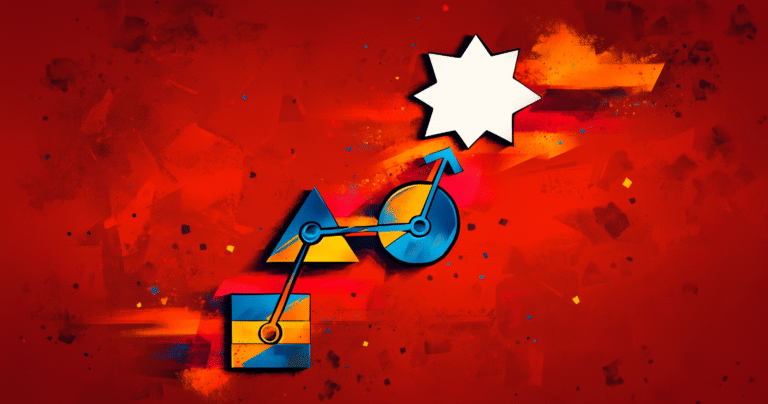Your Marketing Agency Just Got Disrupted: What In-House Teams Need to Know
The writing is on the wall, and it’s written in code.
Meta just announced they’re building the last campaign engine marketing teams will ever need. One where you feed in business goals and get back fully automated campaigns. No media buyers. No strategists. No designers. Just goals in, performance out.
Meanwhile, tools like Veo 3, HeyGen and Captions are producing video content so realistic that the line between AI-generated and human-created has effectively disappeared. What used to require studio bookings, talent coordination, and post-production timelines now happens in an afternoon.
What we’re seeing is the fundamental restructuring of how marketing gets done and what that means for the agency relationships most in-house teams have relied on for years.
The Execution Layer Is Going to Zero
The most immediate impact is hitting those agencies that built their value proposition around execution. Campaign setup, media buying, creative production, even basic strategy development, these services are becoming commoditized at a pace that’s catching many agencies off guard.
Consider what’s already happening across the industry. Performance agencies that charged premium rates for campaign optimization are watching Meta’s algorithms make their manual adjustments obsolete. Creative agencies that built workflows around concepting, designing, and producing video assets are seeing clients generate comparable content using AI tools in-house.
The shift isn’t gradual. It’s compressed into quarters, not years.
According to PwC’s recent analysis of over 500 million job listings, companies using AI are seeing 27% higher revenue per employee. The implication for agency relationships is clear: in-house teams equipped with AI tools can often deliver what previously required external expertise.
What This Means for Marketing Leaders
If you’re leading an in-house marketing team, this disruption creates both opportunity and complexity. The agencies you’ve relied on are being forced to evolve their value propositions in real-time, and not all of them will make the transition successfully.
The question is how to evaluate which partnerships will remain valuable and which ones are becoming cost centers disguised as strategic investments.
Smart marketing leaders are already asking themselves hard questions about their current agency roster. Which agencies are adapting their service offerings to focus on strategy, insight, and creative direction rather than pure execution? Which ones are building AI capabilities that amplify human expertise rather than simply automating existing processes?
More importantly, which agencies understand that their role is shifting from being the hands that execute to being the minds that guide AI systems toward business outcomes?
The New Agency Landscape
The agencies that are surviving this transition share certain characteristics. They’ve moved upstream in the value chain, focusing on market insight, strategic positioning, and creative concepts rather than production and placement.
These evolved agencies aren’t competing with AI, they’re directing it. They’re the ones building custom AI workflows for clients, developing brand guardrails that ensure AI output stays on-strategy, and providing the strategic context that makes AI tools actually useful for business goals.
But they’re also rarer than you might expect. Many agencies are still selling services that can be replicated by AI tools at a fraction of the cost and timeline.
The consultancies are taking notice. EY just launched Studio+, merging 37 firms into what they’re calling a “CX and AI powerhouse” designed specifically for AI-native go-to-market strategies. When the big consulting firms start building marketing capabilities, it’s a signal that traditional agencies are leaving market opportunities on the table.
Questions for Marketing Leaders
If you’re evaluating your current agency relationships or considering new partnerships, these questions can help clarify which agencies are positioned for the AI era:
Strategic Positioning:
- How is this agency using AI to amplify their strategic capabilities rather than just reduce costs?
- Can they articulate a clear point of view about where human expertise remains irreplaceable?
- Do they understand our business context well enough to guide AI toward outcomes that matter to our industry?
AI Integration:
- What AI tools and workflows has this agency actually implemented, not just experimented with?
- How do they ensure AI-generated work aligns with our brand standards and market positioning?
- Can they show evidence of using AI to deliver better results, not just faster turnaround?
Value Proposition Evolution:
- Is this agency’s pricing model aligned with strategic value or still based on time and materials?
- How have they restructured their teams to focus on higher-level thinking rather than execution?
- What’s their plan for staying relevant as AI capabilities continue to expand?
Results and Accountability:
- Can they connect their work directly to business outcomes rather than just marketing metrics?
- How do they measure the strategic impact of their guidance, not just campaign performance?
- Are they willing to be held accountable for results, not just deliverables?
Questions for Agencies
For agencies reading this and wondering how to navigate these changes, the questions are equally important but focused on internal capabilities and market positioning:
Service Portfolio:
- Which of our current services could be replicated by AI tools within the next 18 months?
- What unique value do we provide that goes beyond execution and into strategic insight?
- How are we repositioning our offerings to focus on directing AI rather than competing with it?
Team Capabilities:
- Do our strategists understand AI well enough to guide clients on implementation?
- Have we upskilled our creative teams to direct AI tools rather than just use traditional methods?
- Can our account teams speak intelligently about AI strategy, not just AI tools?
Client Relationships:
- Are we helping clients build internal AI capabilities or trying to maintain dependency on our execution?
- How are we demonstrating strategic value that justifies our fees in an AI-automated world?
- What’s our plan for clients who start handling more marketing functions in-house using AI?
Business Model:
- Is our pricing structure sustainable when execution becomes commoditized?
- How are we investing in AI capabilities that enhance our strategic value?
- What’s our differentiation when every agency has access to the same AI tools?
Building Internal Capabilities
The disruption of traditional agency models creates an opportunity for in-house teams to bring more capabilities internal. But this requires thoughtful planning around which functions to insource and which partnerships to maintain.
AI tools make it possible for lean internal teams to handle tasks that previously required agency support. Content creation, basic design, even media planning can often be managed with the right AI workflows and internal expertise.
The key is building internal AI fluency without trying to replace every external relationship. The most successful in-house teams are becoming smart buyers of AI-enhanced agency services rather than trying to build every capability from scratch.
This means developing internal expertise in AI strategy and implementation while maintaining partnerships with agencies that provide genuine strategic value rather than just additional capacity.
What to Do Next
The agency landscape is being rewritten, and marketing leaders need to stay ahead of these changes rather than react to them.
Start by auditing your current agency relationships against the criteria that matter in an AI-first environment. Which agencies are genuinely evolving their value proposition? Which ones are still selling services that you could handle internally with the right AI tools and processes?
For the partnerships worth maintaining, push for deeper strategic integration. The agencies that survive this transition will be the ones that become true strategic partners rather than just service providers.
For the functions you’re considering bringing in-house, invest in building proper AI capabilities and governance. The goal is to build internal expertise that can adapt as AI tools continue to evolve.
Ready to develop your team’s AI strategy and navigate these agency relationships with confidence? I’d love to help you build internal capabilities while identifying the external partnerships that will actually drive results in this new landscape. Connect with me on LinkedIn to explore how we can work together.







